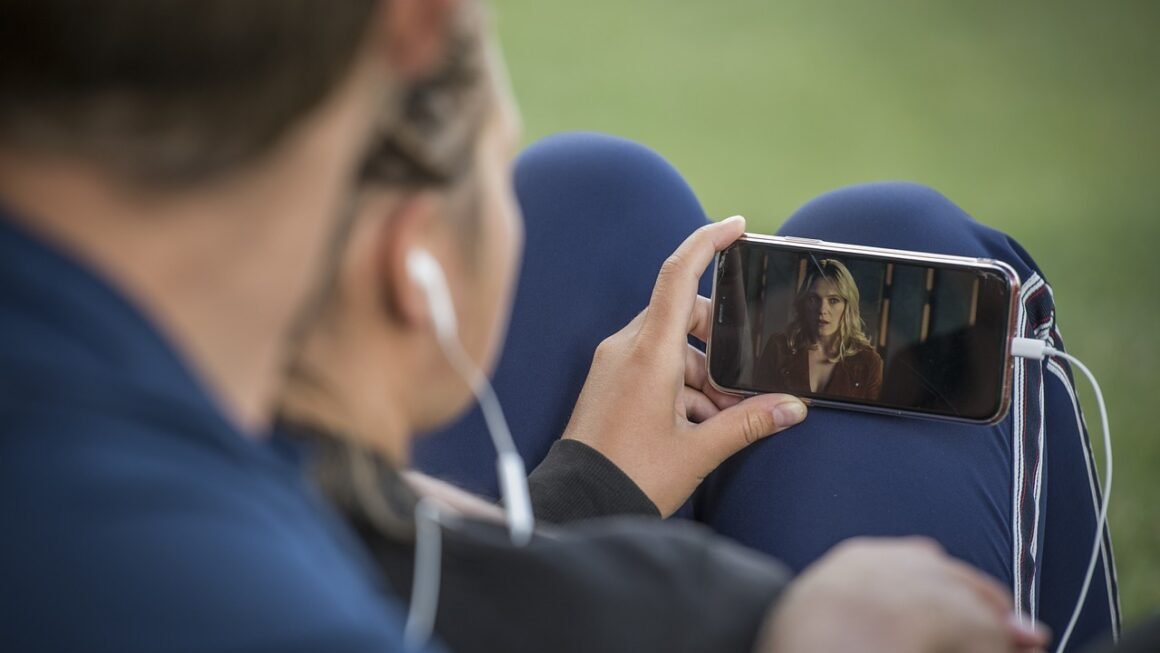The glow of the screen, the comfy couch, and a mountain of snacks – it’s a familiar scene for many: the allure of binge-watching. But what exactly is binge-watching, and why has it become such a ubiquitous part of modern culture? More importantly, is it a harmless pastime, or are there potential pitfalls to consider? Let’s delve into the world of extended TV viewing, exploring its appeal, potential benefits, drawbacks, and tips for responsible enjoyment.
The Rise of Binge-Watching
Defining Binge-Watching
Binge-watching is generally defined as watching multiple episodes of a television program in rapid succession, typically on a single day or over a few days. The advent of streaming services like Netflix, Hulu, Amazon Prime Video, and Disney+ has fueled its popularity, providing on-demand access to entire seasons of television shows.
Factors Contributing to its Popularity
Several factors contribute to the widespread appeal of binge-watching:
- Convenience and Accessibility: Streaming services offer easy access to a vast library of content anytime, anywhere.
- Cliffhangers: Episode endings are often designed to create suspense and encourage viewers to watch the next installment immediately.
- Narrative Immersion: Binge-watching allows viewers to become deeply immersed in the story and characters, enhancing the entertainment experience. Think of getting lost in the world of “Stranger Things” or becoming invested in the characters of “The Queen’s Gambit.”
- Social Connection: Binge-watching can be a shared activity, connecting people through discussions and recommendations. “Did you see that plot twist in episode 5?” is a common conversation starter.
- Escapism: It provides an escape from daily stressors, allowing viewers to relax and unwind.
- Complete Story Arcs: Many modern shows are written with binge-watching in mind, delivering satisfying story arcs that unfold over a full season.
Statistics and Data
According to Nielsen, approximately 73% of people binge-watch. A study by Netflix revealed that the average binge-watching session lasts just over two hours. These figures highlight the prevalence and impact of binge-watching in contemporary viewing habits.
The Potential Benefits of Binge-Watching
Stress Relief and Relaxation
For many, binge-watching serves as a welcome form of stress relief. Immersing oneself in a fictional world can temporarily distract from worries and anxieties.
- Example: After a stressful day at work, watching a lighthearted comedy like “Parks and Recreation” can help to unwind and de-stress.
Enhanced Social Connections
Binge-watching can foster social connections through shared viewing experiences and discussions.
- Example: Discussing the latest episode of “Game of Thrones” with friends or participating in online forums can create a sense of community and belonging.
- Book Clubs and TV Clubs: These can encourage social interaction around specific shows, fostering deeper connections.
Cognitive Stimulation
Certain types of programming, such as documentaries or complex dramas, can stimulate cognitive function and expand knowledge.
- Example: Watching a historical drama like “The Crown” can spark an interest in history and encourage further research.
- Learning Opportunities: Many documentaries and educational programs are available on streaming platforms, offering opportunities for lifelong learning.
Experiencing Diverse Narratives
Streaming platforms offer access to a wide range of stories and perspectives, exposing viewers to different cultures and experiences.
- Example: Watching a foreign language series like “Money Heist” can introduce viewers to new languages and cultures.
The Downsides of Excessive Binge-Watching
Physical Health Concerns
Prolonged periods of sitting can lead to various physical health problems.
- Sedentary Lifestyle: Increased risk of obesity, cardiovascular disease, and type 2 diabetes.
- Eye Strain: Prolonged screen time can cause eye fatigue, headaches, and blurred vision.
- Sleep Disruption: Watching TV before bed can interfere with sleep patterns due to the blue light emitted from screens.
- Practical Tip: Take breaks every 30-60 minutes to stretch, walk around, and rest your eyes.
Mental Health Risks
Excessive binge-watching can contribute to mental health issues such as anxiety and depression.
- Social Isolation: Spending excessive amounts of time watching TV can lead to social isolation and loneliness.
- Mood Changes: Some studies suggest a link between binge-watching and increased feelings of anxiety and depression.
- Addiction: Binge-watching can become addictive, leading to a loss of control over viewing habits.
- Practical Tip: Be mindful of your viewing habits and set limits on how much you watch. Engage in other activities such as exercise, socializing, and hobbies.
Negative Impact on Productivity
Binge-watching can negatively impact productivity and academic or professional performance.
- Procrastination: Spending hours watching TV can lead to procrastination and missed deadlines.
- Decreased Focus: Sleep deprivation from late-night viewing sessions can impair concentration and cognitive function.
- Practical Tip: Schedule designated viewing times and stick to them. Avoid binge-watching when you have important tasks or deadlines.
Opportunity Cost
Time spent binge-watching could be used for more productive or fulfilling activities.
- Missed Opportunities: Time could be spent pursuing hobbies, learning new skills, or spending time with loved ones.
- Stagnation: Over-reliance on passive entertainment can hinder personal growth and development.
- Practical Tip: Balance your viewing habits with other activities that promote personal growth and well-being.
Tips for Responsible Binge-Watching
Set Time Limits
Establish clear boundaries for your viewing habits.
- Use a Timer: Set a timer to remind you when it’s time to stop watching.
- Schedule Viewing Sessions: Plan specific times for binge-watching and stick to the schedule.
- Example: “I’ll watch two episodes tonight and then do something else.”
Prioritize Other Activities
Balance your viewing habits with other important activities.
- Exercise Regularly: Incorporate physical activity into your daily routine.
- Socialize: Spend time with friends and family.
- Pursue Hobbies: Engage in activities that you enjoy and find fulfilling.
- Read Books: Alternative to screen time.
Choose Content Wisely
Be mindful of the type of content you consume.
- Opt for Variety: Alternate between different genres and types of programming.
- Consider Educational Content: Incorporate documentaries or educational shows into your viewing schedule.
- Avoid Triggering Content: Be aware of shows that may trigger anxiety or negative emotions.
Practice Mindful Viewing
Pay attention to your viewing habits and how they affect you.
- Be Present: Avoid distractions and focus on the content you’re watching.
- Reflect on Your Viewing Experience: Consider how the show makes you feel and what you’re learning.
- Be Aware of Your Emotions: If you start feeling overwhelmed or anxious, take a break.
Optimize Your Viewing Environment
Create a comfortable and healthy viewing environment.
- Maintain Good Posture: Sit in a comfortable chair with proper back support.
- Adjust Screen Settings: Reduce brightness and blue light to minimize eye strain.
- Stay Hydrated: Drink plenty of water to stay hydrated.
- Healthy Snacks: Choose healthy snacks over processed foods.
Conclusion
Binge-watching, while offering entertainment and relaxation, requires mindful consumption. By understanding its potential downsides and implementing responsible viewing habits, you can enjoy the benefits without compromising your physical and mental well-being. Setting time limits, prioritizing other activities, choosing content wisely, and practicing mindful viewing are key to balancing this popular pastime with a healthy and fulfilling lifestyle. So, grab the remote, but remember moderation is key to unlocking the true enjoyment of your favorite shows.


